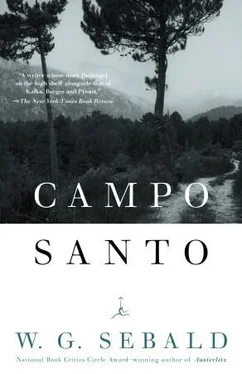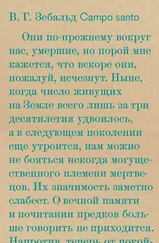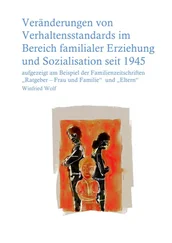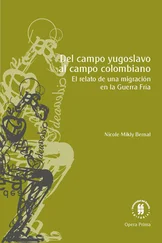Dream Textures: A Brief Note on Nabokov
At the very beginning of Nabokov’s autobiography, programmatically entitled Speak, Memory , there is the story of a man who, we must assume, is still very young, and who suffers a panic attack when he first sees a home movie shot in his parents’ house a few weeks before his birth. All the images trembling on the screen are familiar to him, he recognizes everything, everything is right except for the fact, which disturbs him deeply, that he himself is not where he has always been, and the other people in the house do not seem to mourn his absence. The sight of his mother waving from one of the windows on the upper floor is felt by the distressed viewer to be a farewell gesture, and he is terrified by the sight of the new baby carriage standing on the porch—“with the smug, encroaching air of a coffin; and even that was empty, as if, in the reverse course of events, his very bones had disintegrated.” Nabokov is here suggesting an experience of the anticipation of death in the memory of a time before life, something that makes the viewer a kind of ghost in his own family. Nabokov repeatedly tried, as he himself has said, to cast a little light into the darkness lying on both sides of our life, and thus to illuminate our incomprehensible existence. Few subjects therefore, to my mind, preoccupied him more than the study of spirits, of which his famous passion for moths and butterflies was probably only an offshoot. At any rate, the most brilliant passages in his prose often give the impression that our worldly doings are being observed by some other species, not yet known to any system of taxonomy, whose emissaries sometimes assume a guest role in the plays performed by the living. Just as they appear to us, Nabokov conjectures, so we appear to them: fleeting, transparent beings of uncertain provenance and purpose. They are most commonly encountered in dreams, “in surroundings they never visited during their earthly existence,” and are “silent, bothered, strangely depressed,” obviously suffering severely from their exclusion from society, and for that reason, says Nabokov, “they sit apart, staring at the floor, as if death were a dark taint, a shameful family secret.” Nabokov’s speculations about those who tread the border between life and the world beyond originate in the realm of his childhood, which vanished without trace in the October Revolution; despite the evocative accuracy of his memories, he sometimes wonders whether that Arcadian land ever really existed. Cut off irrevocably as he was from his place of origin by the decades of terror in Russian history, he must surely have felt that retrieving one of its images caused him severe phantom pains, even though he usually looks discreetly, only through the prism of irony, at what he has lost. In the fifth chapter of Pnin he speaks at length and in different voices of the price you must pay on going into exile: not least, besides the material goods of life, the certainty of your own reality. The young emigrants of the early novels, Ganin, Fyodor, and Edelweiss, are already marked much more deeply by the experience of loss than by their new and foreign surroundings. Unexpectedly finding themselves on the wrong side of the frontier, they are airy beings living a quasi-extraterritorial, somehow unlawful afterlife in rented rooms and boardinghouses, just as their author lived at one remove from the reality of Berlin in the twenties. The strange unreality of such an existence in a foreign land seems to me nowhere more clearly expressed than in Nabokov’s remark, made in passing, that he had appeared as an extra in evening dress in several of the films shot in Berlin at that time, which frequently included doppelgängers and such shadowy figures among their characters. There is no proof anywhere else of these appearances of his, so we do not know whether any of them may still be faintly preserved on a brittle strip of celluloid or whether they are now all extinguished, and it seems to me that they have something of the ghostly quality to be found in Nabokov’s own prose, for instance in The Real Life of Sebastian Knight in the passage where the narrator, V., in conversation with Sebastian’s student friend at Cambridge, has a feeling that the ghost of his brother, whose story is on his mind, is moving around the room in the light reflected from the fire on the hearth. This scene of course echoes the ghost stories that were so popular in the eighteenth and nineteenth centuries while a rational view of the world was making itself felt. Nabokov liked to make use of such clichés: dust swirls in circles above the floor; there are inexplicable drafts of air, curiously iridescent effects of light, mysterious coincidences, and strange chance meetings. In the train to Strasbourg, V. finds himself opposite a gentleman called Silbermann whose shape blurs to an indistinct outline in the evening light as the train goes on and on straight into the sunset. Silbermann is a traveling salesman by profession, one of those restless spirits who often cross the narrator’s path in Nabokov’s books. Silbermann asks whether V. is a traveler too, and on getting an answer in the affirmative wants to know exactly what he travels in. V. tells him that he travels in the past, a remark that Silbermann instantly understands. Ghosts and writers meet in their concern for the past — their own and that of those who were once dear to them. As V. tries to trace the real life of Sebastian, that vanished knight of the night, he feels a growing suspicion that his brother is looking over his shoulder as he writes. Such intimations occur with striking regularity in Nabokov’s work, perhaps because after the murder of his father and the death of his brother Sergey, who died of consumption in Hamburg in January 1945 while he was in a concentration camp, he had a vague sense of the continuing presence of those who had been violently torn from this life. As a result, one of Nabokov’s main narrative techniques is to introduce, through barely perceptible nuances and shifts of perspective, an invisible observer — an observer who seems to have a better view not only than the characters in the narrative but than the narrator and the author who guides the narrator’s pen; it is a trick that allows Nabokov to see the world, and himself in it, from above. In fact, his work contains many passages written from a kind of bird’s-eye view. From a vantage point high above the road, an old woman picking herbs sees two cyclists and a car approaching a bend from different directions. From even higher up, from the dusty blue of the sky, an aircraft pilot sees the whole course of the road and two villages lying twelve miles apart. And if we could mount even farther up, where the air grows thinner and thinner, we might perhaps, says the narrator at this point, see the entire length of the mountain range and a distant city in another land — Berlin, for instance. This is to see the world through the eye of the crane, as the Dutch painters sometimes did in painting scenes like the Flight into Egypt, when they rose above the flat panorama surrounding them down on earth. In the same way writing, as Nabokov practiced it, is raised on high by the hope that, given sufficient concentration, the landscapes of time that have already sunk below the horizon can be seen once again in a synoptic view. Nabokov also knew, better than most of his fellow writers, that the desire to suspend time can prove its worth only in the most precise re-evocation of things long overtaken by oblivion. The pattern on the bathroom floor at Vyra, the white steam rising above the tub at which the boy looks dreamily from his seat in the dimly lit lavatory, the curve of the doorframe on which he leans his forehead — suddenly, with a few well-chosen words, the whole cosmos of childhood is conjured up before our eyes as if pulled out of a black top hat. A large oil lamp on an alabaster stand is moved through the darkness. It hovers gently in the air, and gently settles in its place. The white-gloved hand of a servant, which is now the hand of memory, sets it down in the middle of the round table. We are attending the séance staged by Nabokov, and strangely familiar characters and objects emerge surrounded by that claritas which has always, since Saint Thomas Aquinas, been regarded as the sign of a true epiphany. Even for Nabokov, recording such visionary moments was a very arduous business. A short sequence of words often needed hours of work before the rhythm was right, down to the last cadence, before the gravity of earth had been overcome and the author, now as it were disembodied himself, could reach the opposite bank across his precarious bridge of written characters. Where that undertaking succeeds, however, one is borne along by the current of lines sweeping on and on into a radiant realm which, like everything that is wonderful, has a touch of the surreal about it, and finally seems to stand on the threshold of the revelation of an absolute truth, “dazzling,” as we are told at the end of The Real Life of Sebastian Knight , “in its splendor and at the same time almost homely in its perfect simplicity.” To set something so beautiful in motion, according to both Nabokov and the messianic theory of salvation, no gaudy show is necessary, only a tiny spiritual movement which releases the ideas that are shut inside our heads and always going around in circles, letting them out into a universe where, as in a good sentence, there is a place for everything and everything is in its place. Nabokov has compared the shifts to which the writer must resort in composing such a sentence to the moves of a game of chess, one in which the players themselves are chessmen in a game played by an invisible hand. A steamer moves slowly away from the roadsteads of Sebastopol and out on the water. From the banks the sounds of the Bolshevist revolution still echo — shouting and salvos of gunfire. But on the ship’s deck, father and son face each other over a chessboard, already immersed in the looking-glass world of exile ruled by the White Queen where one easily becomes dizzy simply by living backward. “Life is a Chequer-board of Nights and Days / where Destiny with Men for Pieces plays: / Hither and thither moves, and mates, and slays, / And one by one back in the Closet lays.” Nabokov would certainly have subscribed to the notion of eternal movement expressed in these lines translated from the eleventh-century Persian poet by Edward FitzGerald, one of his distant predecessors at Trinity College, Cambridge. It is not surprising that from the moment of his exile Nabokov never had a real home, not in his years in England or in Berlin, or in Ithaca where he famously lived only in rented accommodation and kept moving on. His final place of residence in Montreux, where he could see above every earthly obstacle from his front-of-the-circle seat on the top floor of the Palace Hotel and out into the sun setting above the lake, was surely his dearest and most appropriate home after the Vyra estate of his childhood, just as a visitor called Simona Marini, who went to see him on February 3, 1972, tells us that the cable railway, particularly the chairlift, was his favorite means of transport. “I find it delightful and dreamlike in the best sense of the word to hover in the morning sunlight on this magical perch between the valley and the treeline, observing my shadow from above as, in a seated position — a ghostly butterfly net in its ghostly hand — it moves gently down the flowery slope like a scissor-cut seen sideways among the dancing alpines and fritillaries. One day,” adds Nabokov, “yet subtler dream material will meet the butterfly hunter as he glides away upright over the mountains, borne aloft by a small rocket strapped to his back.” This image of an ascension into heaven with its final touch of humor evokes another such passage, in my opinion the finest he ever wrote. It is at the end of the first chapter of Speak, Memory , and is an account of a scene that often took place at Vyra when the peasants from the village came up to the manor house with some petition or other, usually at midday when the Nabokovs were in their first-floor dining room. Once the lord of the manor, Vladimir Dimitrievich, had risen from table and gone out to see the petitioners and hear their request, then if the matter could be settled to the delegation’s satisfaction it was their custom to throw him into the air three times by their united powers and catch him again as he came down. “From my place at table,” writes Nabokov,
Читать дальше












